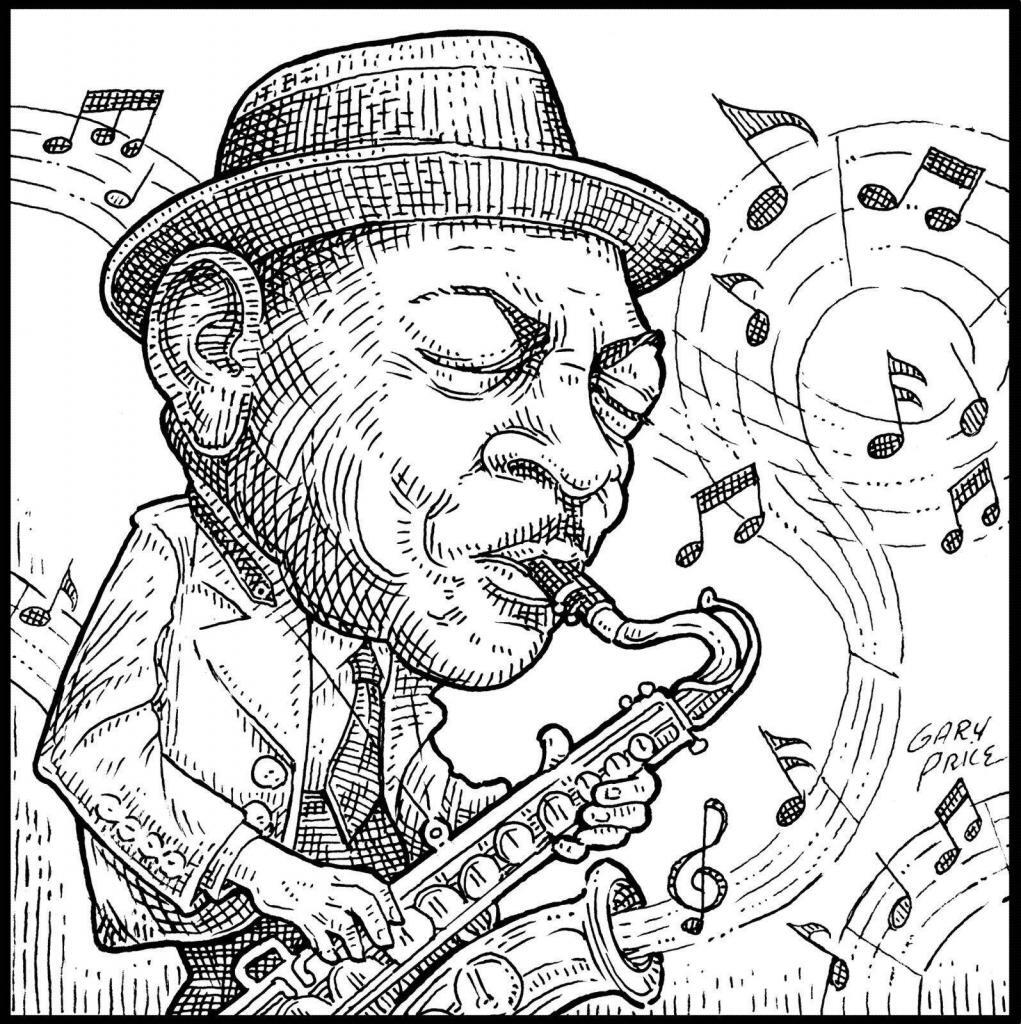
Coleman Randolph Hawkins was born in St. Joseph, Missouri on November 21, 1904. He played cello and piano from childhood but at the age of nine received a tenor saxophone for his birthday. The tenor sax in 1913 was not highly regarded, being primarily used in marching bands and as a novelty instrument in Vaudeville.
Coleman earned money playing saxophone for dances as early as age 12. During his teens, he learned the rest of the saxes and the clarinet, and became a skilled pianist. He was talented enough to impress blues singer Mamie Smith, who was touring the country in the wake of the popularity of her 1920 recording of “Crazy Blues.” Smith heard Hawkins play in Kansas City in 1921 and hired him to join her Jazz Hounds in New York.
Coleman Hawkins joined the Fletcher Henderson Orchestra in 1923. He was almost immediately Henderson’s most-valued sideman—he stayed with Henderson until 1934. His tenor sax technique rapidly evolved from the slap-tongued novelty approach to a more smooth and virtuosic jazz style. A catalyst to this change in style was the inclusion of Louis Armstrong in the band in 1924. Armstrong, it is often said, “taught the Henderson band how to swing.” Hawkins was duly inspired by Louis, and he transformed the tenor sax into the archetypical jazz horn almost overnight.
By 1934, Hawkins was tired of Henderson’s lackadaisical band management and ventured overseas on his own. He played in Europe and made a huge hit in England, France, and Holland and recorded there prolifically. (Germany was not friendly to jazz or to black musicians.) He came home when the eventuality of war loomed closer. He also wanted to take advantage of the new popularity of Swing.
In 1939, Hawkins recorded his solo version of “Body and Soul,”—a rare hit as a pure jazz, non-dance recording. He astonished the younger musicians playing bebop by keeping up with and anticipating their innovations (often to the dismay of fans who preferred his earlier recordings). Hawk remained a formidable force in jazz until alcohol took a toll on his health in the late 1960s. Coleman Hawkins died at age 64, on May 19, 1969.
Andy Senior is the Publisher of The Syncopated Times and on occasion he still gets out a Radiola! podcast for our listening pleasure.




















